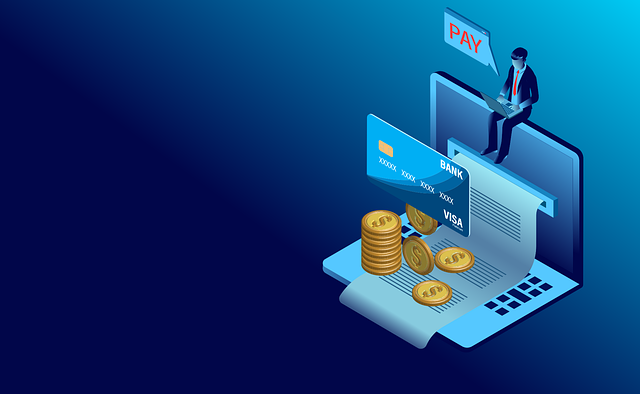High-interest credit cards can quickly spiral into debt due to variable rates. Consolidating debt into one low-rate loan is a strategic solution, saving money on interest and simplifying repayment by combining multiple debts into one manageable payment. When comparing high-interest cards and loans for debt consolidation, consider fixed vs. variable rates, costs, and long-term savings. This method offers clearer budgeting and a unified repayment plan but may extend the repayment period and incur fees. Weighing pros and cons is crucial before consolidating to align with financial goals and circumstances, ensuring successful management of multiple high-interest debts.
In the pursuit of financial stability, individuals often grapple with debt management. Two prevalent strategies stand out: high-interest credit cards and consolidating debt into one low-rate loan. This article guides you through a meticulous analysis of these options. We explore the intricacies of high-interest cards—their features, benefits, and drawbacks—and present the advantages of a single low-rate loan for debt consolidation. By understanding interest rates, repayment methods, and effective debt management strategies, you can make an informed decision to consolidate debt into one loan, ensuring financial wellness.
- Understanding High-Interest Credit Cards: Features and Pitfalls
- The Advantages of a Single Low-Rate Loan for Debt Consolidation
- Comparing Interest Rates: A Closer Look at Costs
- Pros and Cons of Different Repayment Methods
- Strategies for Effective Debt Management: Choosing the Right Path
Understanding High-Interest Credit Cards: Features and Pitfalls

High-interest credit cards, often marketed with enticing rewards and benefits, can be a double-edged sword. These cards typically offer perks like cashback, travel miles, or points that seem appealing at first glance. However, the catch lies in their high-interest rates, which can skyrocket if you carry a balance from month to month. This is where consolidating debt into one low-rate loan becomes an attractive alternative for consumers.
When you consolidate your debts onto a single loan with a lower interest rate, you gain better control over your finances. Instead of paying multiple cards with varying rates, a consolidated loan allows you to focus on repaying the principal at a more manageable pace. This strategy can save you money in the long run by reducing the overall interest paid and simplifying your monthly payments, making it easier to stick to a debt repayment plan.
The Advantages of a Single Low-Rate Loan for Debt Consolidation

When it comes to managing debt, consolidating can be a strategic move for financial relief. One of the most appealing options is obtaining a single low-rate loan to consolidate multiple high-interest debts. This approach offers several advantages. Firstly, it simplifies repayment by combining all debts into one manageable loan. Instead of tracking multiple payments with varying interest rates, borrowers have a single payment with a consolidated, lower rate, making budgeting easier.
Additionally, this method can significantly reduce overall interest expenses. High-interest credit cards often trap individuals in a cycle of increasing debt due to the compounding interest. With a low-rate loan, the fixed interest rate allows for predictable and affordable monthly payments. This strategy provides borrowers with more financial freedom and stability, enabling them to focus on paying off the loan rather than just the highest-interest debts first.
Comparing Interest Rates: A Closer Look at Costs

When considering high-interest credit cards versus a single low-rate loan solution for debt consolidation, understanding the interest rates and associated costs is paramount. High-interest cards often charge rates that can escalate quickly, especially if there are missed payments or only minimum balances are paid each month. These rates can vary widely, but they typically start at 14% and can go up to 25% or more, depending on the card’s terms and your creditworthiness. On the other hand, a low-rate loan solution, often provided by banks or credit unions, offers a fixed interest rate that remains consistent throughout the loan period. This can significantly reduce costs over time, especially for larger debt amounts.
Consolidating debt into one loan allows you to simplify payments and potentially save money on interest. By comparing interest rates and loan terms, borrowers can make informed decisions about which option aligns best with their financial goals. A lower interest rate means less money spent on interest charges, allowing for faster debt repayment and potential savings in the long run. It’s crucial to evaluate both short-term and long-term costs when choosing between high-interest cards and a low-rate loan to ensure the best financial outcome.
Pros and Cons of Different Repayment Methods

When considering repayment methods, there are several options available for managing high-interest credit card debt. One popular strategy is to consolidate debt into one loan. This approach offers several advantages. By combining multiple debts into a single, lower-interest loan, individuals can simplify their repayments and potentially save on interest charges over time. It provides a clear repayment plan and allows for better budgeting, as all payments are made towards one loan rather than several credit lines.
However, this method also has its drawbacks. Consolidation may extend the overall repayment period, meaning it could take longer to pay off the debt entirely. Additionally, depending on the lender and terms, there might be fees associated with consolidating loans, which could increase the overall cost of borrowing. It’s crucial to weigh these pros and cons carefully before deciding on a repayment strategy that aligns with individual financial goals and circumstances.
Strategies for Effective Debt Management: Choosing the Right Path

When it comes to managing debt, there are numerous strategies that can help individuals gain control over their financial situations. One effective approach is to consider consolidating your debts into a single loan with a lower interest rate. This strategy involves taking out a new loan with better terms to pay off multiple existing debts. By doing so, you simplify your repayment process and potentially save money on interest charges.
Choosing the right debt management path depends on evaluating your financial situation and goals. If you have multiple high-interest credit cards, consolidating them into one low-rate loan can be a wise decision. This method streamlines payments, makes budgeting easier, and could lead to significant savings over time. However, it’s crucial to compare loan options, understand the terms, and ensure you can meet the repayment schedule to avoid further financial complications.

